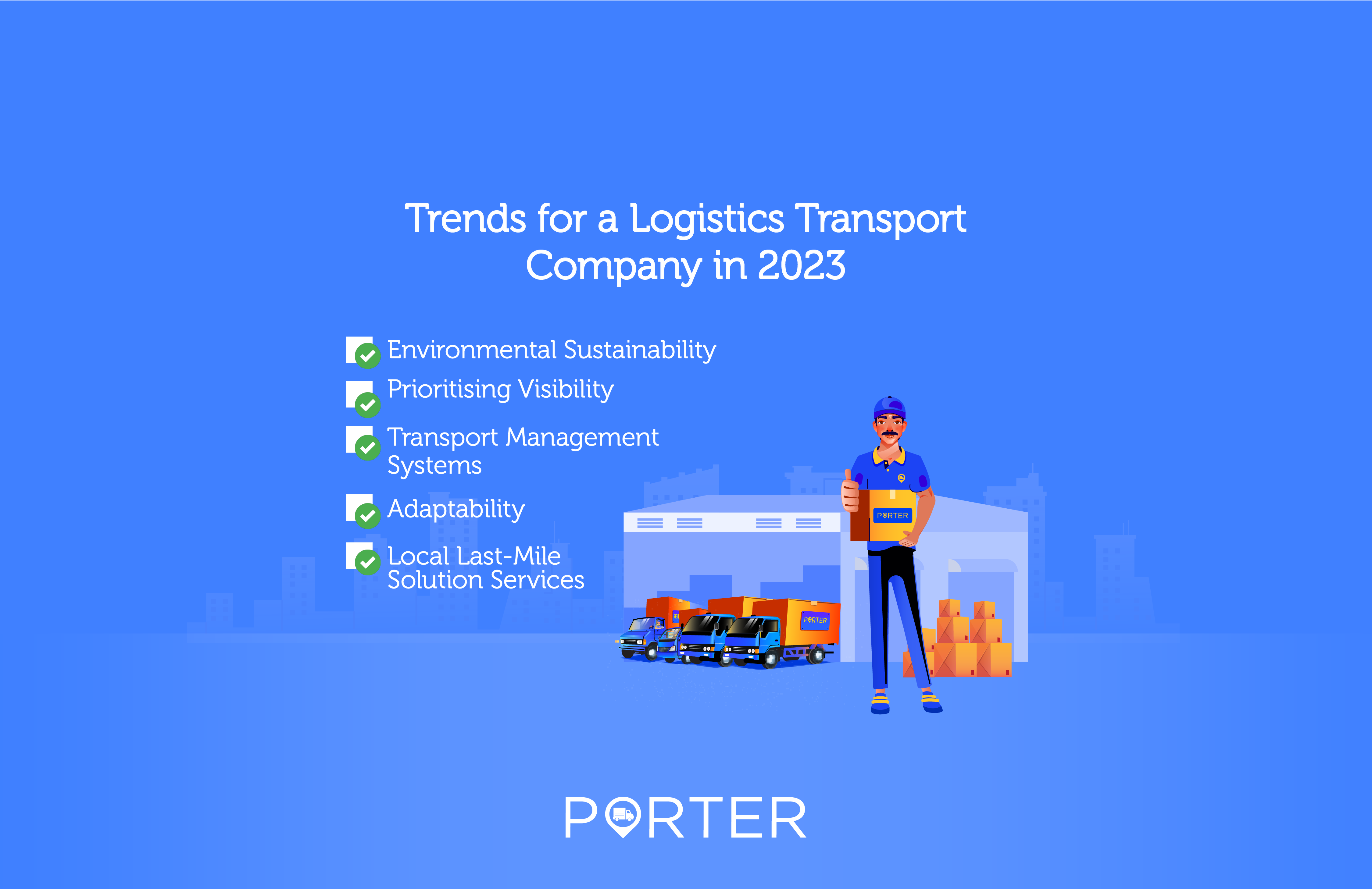
The logistical landscape has become even more convoluted ever since the pandemic hit. Global supply chains have been drastically disrupted, causing significant hindrances such as backlogs, delays, and shortages across the industry. But the pandemic acted as a catalyst for the transformation of this sector.
The Global Logistics Market Report and Forecast 2022-2027 stated that the logistics market has the potential to grow to $445.8 billion by 2027. Every logistic transport company is now taking steps to ensure their operations remain efficient and profitable in light of the many changes in the industry. To achieve this, they are investing in risk-reduction strategies, seeking resilient solutions, and utilising technological advancements. Companies are also focusing on agility that enables them to quickly respond to changing customer demands and market conditions, improve operational processes and increase profits.
Environmental Sustainability
Environmental sustainability is one recent concept that has risen from the margins to the centre. Nowadays, consumers are concerned about the environmental impact of the services they select. As a result, the use of sustainable fuel and recyclable packaging materials is being emphasised more than ever.
It is important to remember that the logistics industry has contributed significantly to the huge percentage of carbon emissions. Hence, any logistic transport company should have sustainability at the top of their priority list.
As the demand for more sustainable delivery practices increases, every logistic transport company must look to green solutions, such as LNG-powered ships, electric trucks and renewable aviation fuel. Making these commitments now will position companies ahead of the curve and make them increasingly focused on environmental protection.
Every logistic transport company has the potential to significantly reduce carbon emissions through increased efficiency and effectiveness. By streamlining processes like Porter does, such as route planning, handling bulk deliveries, and using tech-driven last-mile logistics solutions, companies can minimise their carbon footprint.
Robotics
Robotics is rapidly transforming the logistics industry, enabling every logistic transport company to increase efficiency and accuracy while reducing costs. The global market size for logistics robots is expected to grow to $21.01 billion by 2029.
Autonomous mobile robots (AMRs) are being used to transport goods between locations, while collaborative robots (cobots) work alongside human workers to perform precise tasks like picking and packing. Automated guided vehicles (AGVs) use a combination of sensors and software for efficient navigation, and drones are being used for inventory management, delivery, and monitoring. Robotic process automation (RPA) is also being applied in logistics to automate repetitive tasks like data entry and processing.
Prioritising Visibility
Every logistic transport company is concentrating on raising the visibility of their business. This has proven to be a highly practical approach to increasing their clientele and breaking into new areas. Businesses are investing in technologies and track systems that tell every link in the supply chain of the precise location of a given shipment.
Additionally, as ecommerce trends continue to grow, customers demand constant access to real-time information regarding the progress of their orders. Enhancing the operations’ visibility will not only put a logistic transport company on par with the sector’s leaders, but it will also increase customer loyalty.
The 2023 Union Budget of India prioritises strengthening infrastructure, advancing connectivity initiatives, and integrating the Unified Logistics Interface Platform into the system in order to reduce logistics costs and times while enhancing transparency and visibility. The country’s National Logistics Policy will be crucial to the development of an agile supply chain system.
API Services
Automated booking and real-time tracking are critical components of many businesses that rely on transportation or delivery services. These businesses often need to track their vehicles, drivers, and deliveries in real-time to ensure that they can meet customer demands and optimise their logistics operations. To accomplish this, many businesses turn to API services, such as Google Maps or Booking APIs, that offer automated bookings and real-time tracking capabilities.
API services can be integrated with Transport and Order Management Systems, allowing a logistic transport company to manage their logistics operations from a single platform. Transportation management systems are essential to successful supply chain operations, as they play a part in each stage of the process – from scheduling and purchasing to logistics and asset maintenance. These systems ensure that businesses have the right products at the right time with minimal cost and effort.
Looking for a Logistics Company in Pune. Porter is your city to deliver your goods to your customers at door steps.
Local Last-Mile Solution Services
Last Mile Delivery or the last stage of the delivery process can be costly and complex, especially with an increasing demand for fast delivery. As a result, organisations must embrace the latest technological solutions, such as autonomous delivery systems, to meet this requirement and push the logistics industry forward.
Business owners are capitalising on last-mile logistics to provide a more personalised delivery experience for their clients by focusing on local logistics transport companies. Last-mile logistics make it possible to customise delivery times according to client needs, reducing wait times and providing more convenience.
The Road Ahead
As the logistics sector rapidly evolves, every logistic transport company must remain agile and implement innovative technologies to stay competitive, with robotics, big data analysis, AI-driven strategies and cloud computing amongst other digital advancements now available at their fingertips.
Every logistic transport company is in a position where they can anticipate customer demand more accurately than ever before. However, to thrive amidst market uncertainty, there needs to be an effortless integration of cutting-edge tech into business models.
Porter understands the changing landscape of the logistics industry and utilises technology to provide efficient services to enterprises. Whether you need a logistics company in Kolkata or any other city in India, Porter will offer their expertise to fulfil business needs.
Discover how Porter’s logistics services can help your business stay competitive.

